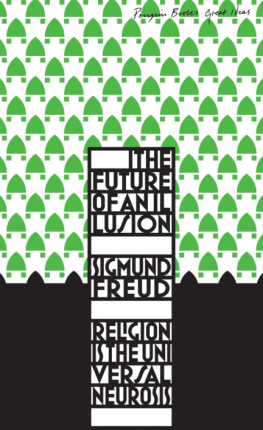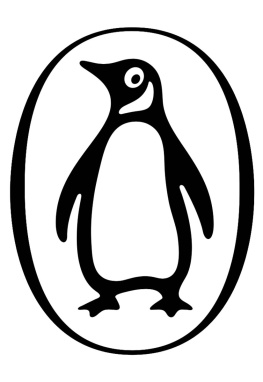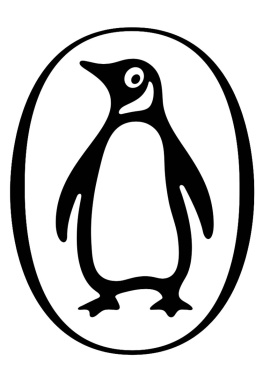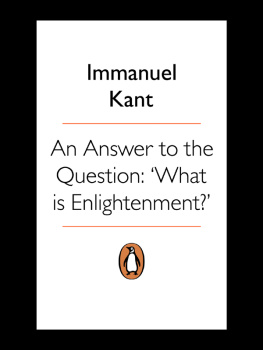Lucretius
c. 99-c. 55 BC
Lucretius
Sensation and Sex
TRANSLATED BY
R . E . LATHAM
PENGUIN BOOKS GREAT IDEAS
PENGUIN BOOKS
Published by the Penguin Group
Penguin Books Ltd, 80 Strand, London WC2R 0RL , England
Penguin Group (USA) Inc., 375 Hudson Street, New York, New York 10014, USA
Penguin Group (Canada), 10 Alcorn Avenue, Toronto, Ontario, Canada, M4V 3B2
(a division of Pearson Penguin Canada Inc.)
Penguin Ireland, 25 St Stephens Green, Dublin 2, Ireland
(a division of Penguin Books Ltd)
Penguin Group (Australia), 250 Camberwell Road,
Camberwell, Victoria 3124, Australia (a division of Pearson Australia Group Pty Ltd)
Penguin Books India Pvt Ltd, 11 Community Centre,
Panchsheel Park, New Delhi 110 017, India
Penguin Group (NZ), cnr Airborne and Rosedale Roads, Albany,
Auckland 1310, New Zealand (a division of Pearson New Zealand Ltd)
Penguin Books (South Africa) (Pty) Ltd, 24 Sturdee Avenue,
Rosebank 2196, South Africa
Penguin Books Ltd, Registered Offices: 80 Strand, London, WC2R 0RL , England
www.penguin.com
On the Nature of the Universe first published in Penguin Classics 1951
This extract published in Penguin Books 2005
Translation copyright 1951 by R. E. Latham
All rights reserved
Taken from the Penguin Classics edition of On the Nature of the Universe, translated and edited by R. E. Latham
Except in the United States of America, this book is sold subject to the condition that it shall not, by way of trade or otherwise, be lent, re-sold, hired out, or otherwise circulated without the publishers prior consent in any form of binding or cover other than that in which it is published and without a similar condition including this condition being imposed on the subsequent purchaser
ISBN: 978-0-14-196535-2
Life and Mind
You, who out of black darkness were first to lift up a shining light, revealing the hidden blessings of life you are my guide, O glory of the Grecian race. In your well-marked footprints now I plant my resolute steps. It is from love alone that I long to imitate you, not from emulous ambition. Shall the swallow contend in song with the swan, or the kid match its rickety legs in a race with the strong-limbed steed? You are my father, illustrious discoverer of truth, and give me a fathers guidance. From your pages, as bees in flowery glades sip every blossom, so do I crop all your Golden Sayings golden indeed, and for ever worthy of everlasting life.
As soon as your reasoning, sprung from that god-like mind, lifts up its voice to proclaim the nature of the universe, then the terrors of the mind take flight, the ramparts of the world roll apart, and I see the march of events throughout the whole of space. The majesty of the gods is revealed and those quiet habitations, never shaken by storms nor drenched by rain-clouds nor defaced by white drifts of snow which a harsh frost congeals. A cloudless ether roofs them, and laughs with radiance lavishly diffused. All their wants are supplied by nature, and nothing at any time cankers their peace of mind. But nowhere do I see the halls of Hell, though the earth is no barrier to my beholding all that passes underfoot in the space beneath. At this I am seized with a divine delight, and a shuddering awe, that by your power nature stands thus unveiled and made manifest in every part.
I have already shown what the component bodies of everything are like; how they vary in shape; how they fly spontaneously through space, impelled by a perpetual motion; and how from these all objects can be created. The next step now is evidently to elucidate in my verses the nature of mind and of life. In so doing I shall drive out neck and crop that fear of Hell which blasts the life of man from its very foundations, sullying everything with the blackness of death and leaving no pleasure pure and unalloyed. I know that men often speak of sickness or of shameful life as more to be dreaded than the terrors of Hell; they profess to know that the mind consists of blood, or maybe wind, if that is how the whim takes them, and to stand in no need whatever of our reasoning. But all this talk is based more on a desire to show off than on actual proof, as you may infer from their conduct. These same men, though they may be exiled from home, banished far from the sight of their fellows, soiled with some filthy crime, a prey to every torment, still cling to life. Wherever they come in their tribulation, they make propitiatory sacrifices, slaughter black cattle and dispatch offerings to the Departed Spirits. The heavier their afflictions, the more devoutly they turn their minds to superstition. Look at a man in the midst of doubt and danger, and you will learn in his hour of adversity what he really is. It is then that true utterances are wrung from the recesses of his breast. The mask is torn off; the reality remains.
Consider too the greed and blind lust of power that drive unhappy men to overstep the bounds of right and may even turn them into accomplices or instruments of crime, struggling night and day with unstinted effort to scale the pinnacles of wealth. These running sores of life are fed in no small measure by the fear of death. For abject ignominy and irksome poverty seem far indeed from the joy and assurance of life, and in effect loitering already at the gateway of death. From such a fate men revolt in groundless terror and long to escape far, far away. So in their greed of gain they amass a fortune out of civil bloodshed: piling wealth on wealth, they heap carnage on carnage. With heartless glee they welcome a brothers tragic death. They hate and fear the hospitable board of their own kin. Often, in the same spirit and influenced by the same fear, they are consumed with envy at the sight of anothers success: he walks in a blaze of glory, looked up to by all, while they curse the dingy squalor in which their own lives are bogged. Some sacrifice life itself for the sake of statues and a title. Often from fear of death mortals are gripped by such a hate of living and looking on the light that with anguished hearts they do themselves to death. They forget that this very fear is the fountainhead of their troubles; this it is that harasses conscience, snaps the bonds of friendship and hurls down virtue from the heights. Many a time before now men have betrayed their country and their beloved parents in an effort to escape the halls of Hell.
As children in blank darkness tremble and start at everything, so we in broad daylight are oppressed at times by fears as baseless as those horrors which children imagine coming upon them in the dark. This dread and darkness of the mind cannot be dispelled by the sunbeams, the shining shafts of day, but only by an understanding of the outward form and inner workings of nature.
First, I maintain that the mind, which we often call the intellect, the seat of the guidance and control of life, is part of a man, no less than hand or foot or eyes are parts of a whole living creature. There are some who argue that the sentience of the mind is not lodged in any particular part, but is a vital condition of the body, what the Greeks call a harmony, which makes us live as sentient beings without having any locally determined mind. Just as good health may be said to belong to the healthy body without being any specific part of it, so they do not station the sentience of the mind in any specific part. In this they seem to me very wide of the mark. Often enough the visible body is obviously ill, while in some other unseen part we are enjoying ourselves. No less often the reverse happens: one who is sick at heart enjoys bodily well-being. This is no different from the experience of an invalid whose foot is hurting while his head is in no pain.
Next page








